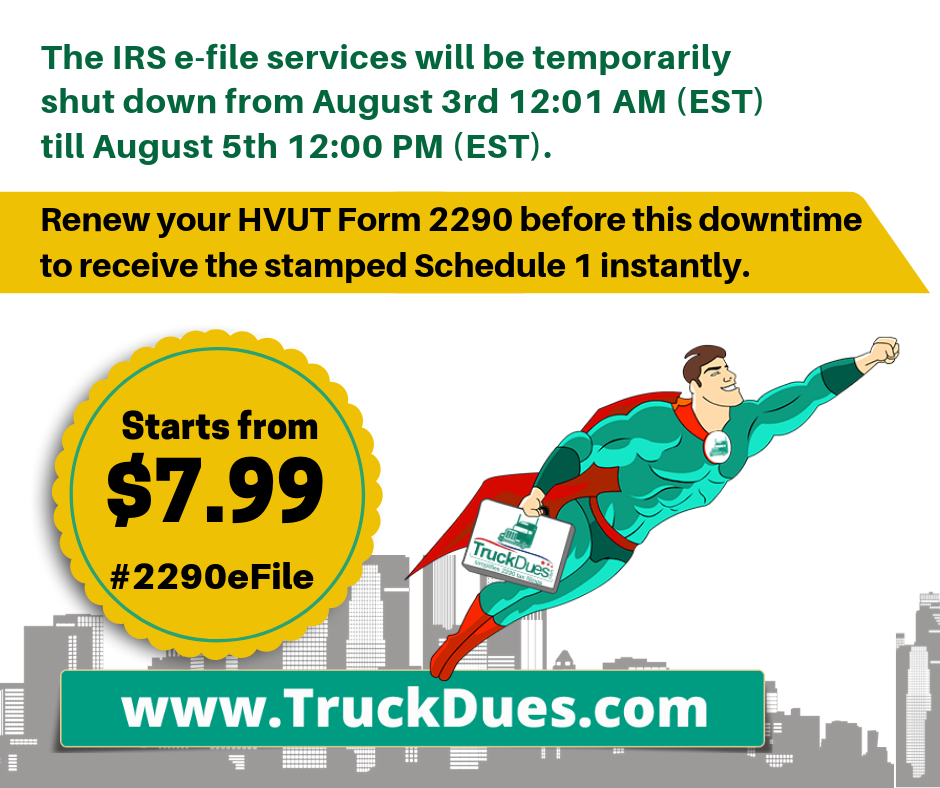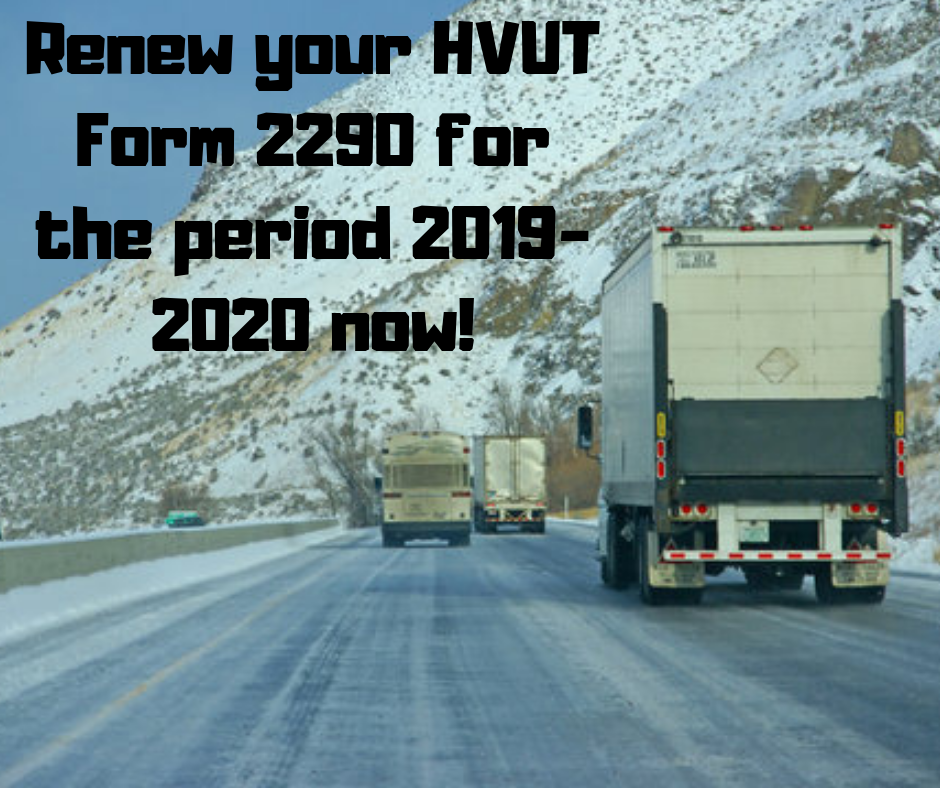
Hello there Truckers, the HVUT Form 2290 is now due for the Period beginning July 1, 2019 through June 30, 2020. It has been at least a couple of months since the IRS has started accepting HVUT Form 2290 for the Period July 2019-2020. However, it got delayed meanwhile due to the recent IRS temporary downtime which occurred as a result of up gradation purposes.
The IRS systems goes offline every year during the month of December due to Christmas holidays and they would recommence full operations by the 2nd week after the New Year. But this will be a scheduled downtime which happens every year in order for the IRS to be able to stabilize their systems to accept the HVUT Form 2290 for the upcoming tax year.
Every year, the HVUT Form 2290 is due by June and its payable until the end of August. But we advise the HVUT payers, not to wait until the last moment to e-file the HVUT Form 2290 and would recommend them to e-file their HVUT before July 31st, 2019 to avoid a last moment rush and to join the procrastinator club to enable a further delay on receiving the IRS digital watermarked copy of Schedule 1 in your e-mail.
The Heavy Highway vehicle used tax return is basically an Annual Tax paid to the Internal Revenue Service on vehicles with a minimum gross weight of 55000 lbs or more and if the same vehicle is been used over the public highways for commercial, Agricultural & Logging purposes. Tax dues are always paid upfront full in advance to the Internal Revenue Service.









